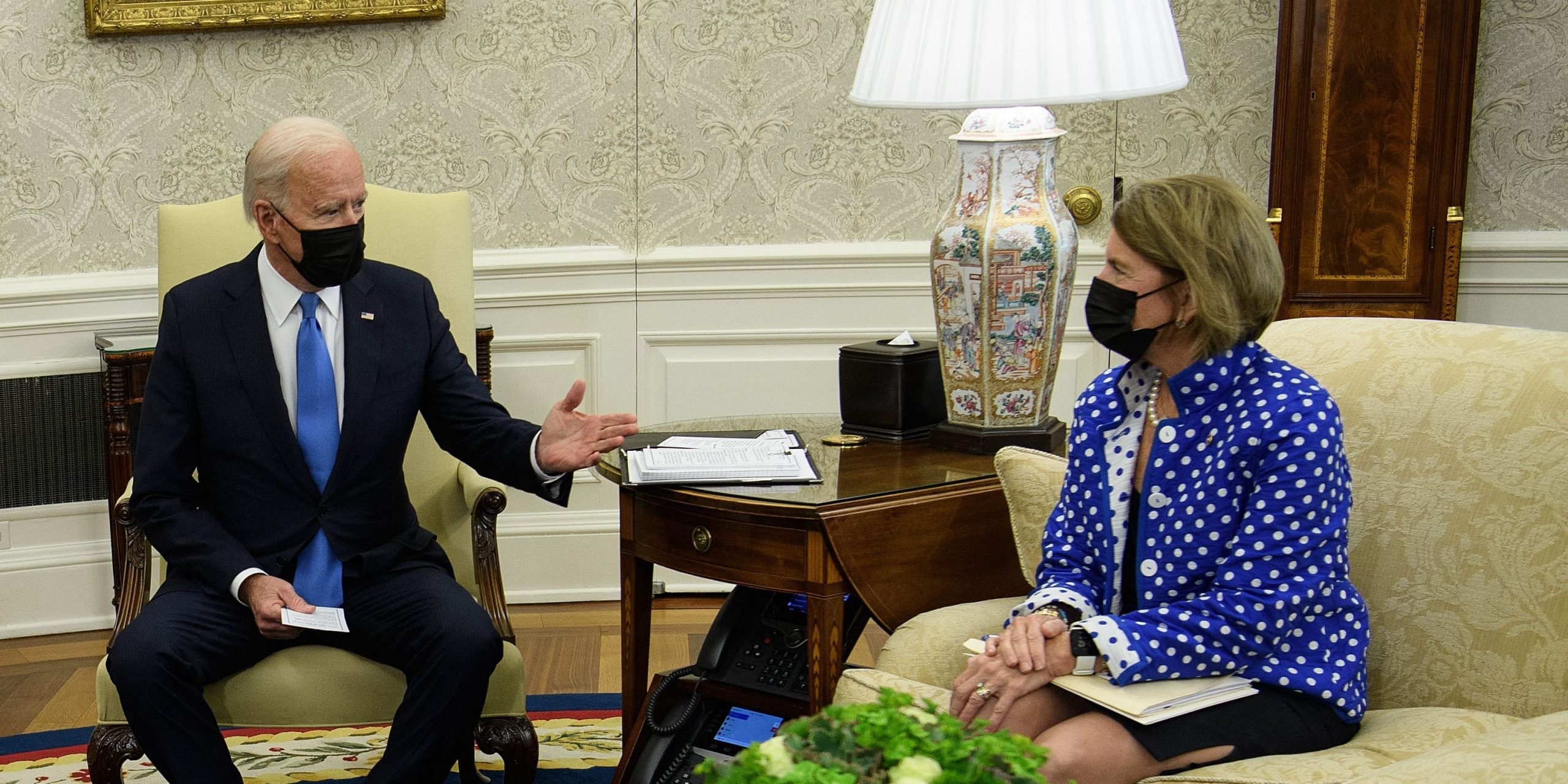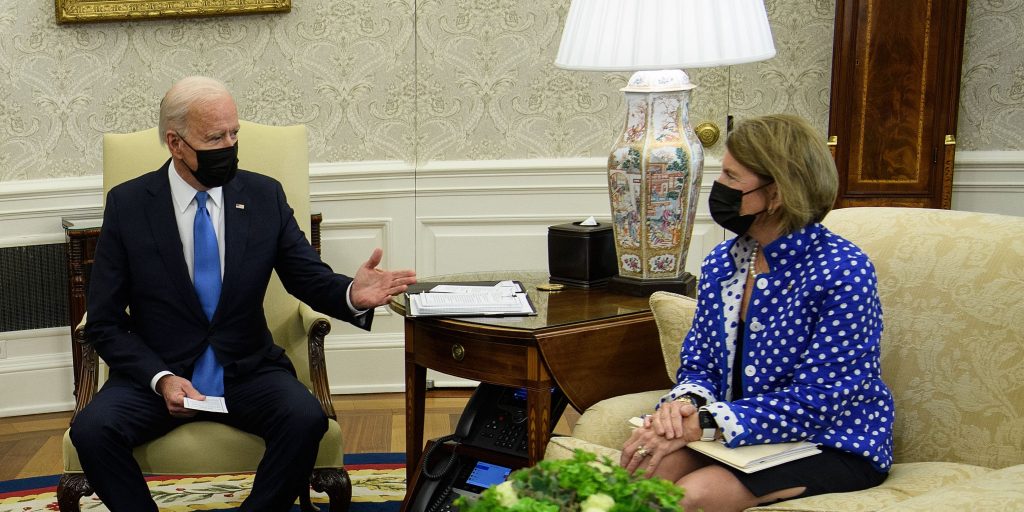
NICHOLAS KAMM/AFP via Getty Images
- A group of Senate Republicans introduced a $928 billion infrastructure counteroffer to Biden.
- However, only a quarter of that appears to be new government spending beyond what's already been authorized by Congress.
- It's unlikely to satisfy Democrats and the White House.
- See more stories on Insider's business page.
Senate Republicans on Thursday made a $928 billion infrastructure counteroffer to the White House in a proposal that only modestly increases new federal spending compared to what the Biden administration is seeking.
GOP Sen. Shelley Moore Capito of West Virginia has spearheaded the working group for the last three weeks. It also includes Republicans Sens. John Barrasso of Wyoming, Sen. Roy Blunt of Missouri, and Sen. Pat Toomey of Pennsylvania.
"Senate Republicans continue to negotiate in good faith," Capito said at a news conference. "We're trying to reach that common goal of a bipartisan infrastructure plan."
The new plan includes the following provisions, which is largely concentrated on physical infrastructure:
- $506 billion for roads and bridges
- $98 billion for public transit systems
- $72 billion for water systems
- $65 billion for broadband
- $56 billion for airports
- $46 billion for passenger and freight rail
- $22 billion for ports and waterways
It also includes federal money for water storage and safety.
However, the offer is unlikely to satisfy the Biden administration and congressional Democrats. They are pressing to include what they view as human infrastructure spending, an expansive definition that includes new domestic initiatives in healthcare, education, and an expansion of the safety net.
Both sides are clashing on the size and scope of an infrastructure plan, a disagreement that's unlikely to be resolved by the latest Republican offer.
The White House put on the table $1.7 trillion in new spending during the negotiations, a $500 billion reduction from the original $2.3 trillion package. Their proposal includes funding to upgrade roads and bridges, broadband, domestic manufacturing, and in-home elder care among others.
This story will be updated.

